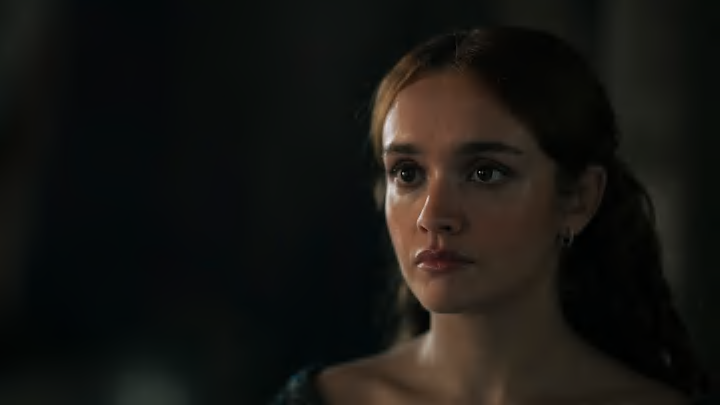Variety has just published an article on "Power Women of Hollywood 2024," a list of actors, writers, directors, producers and more who are making an impact in the entertainment industry. Three people who work on HBO's House of the Dragon made the list. First there's Geeta Patel, who directed great episodes like "The Lord of the Tides."
And then there's Olivia Cooke and Emma D'Arcy, who play Alicent Hightower and Rhaenyra Targaryen respectively. Cooke had some interesting things to say about the depiction of female characters on TV and in movies. “Stop using the word ‘strong’ to describe female characters. It’s so reductive and patronizing,” she said. “A breakthrough for female character development would be for the industry to accept that people come with baggage and flaws, are imperfect and ugly and exciting and soft, and all the things in between. That we’re not preternaturally youthful and that sex and sexuality get better with age and wisdom. I would love to see more of an embracing and reflection of that.”
I feel like Cooke's comments track with how thinking on female characters has evolved over the years. Although it's improved over time, it's no secret that women make up a minority of influential producers, writers, directors and other creatives in the industry, and often that's resulted in movies and TV shows where female characters feel like underwritten afterthoughts, or like characters who are only allowed to fit into a limited number of types and tropes. There have been a few waves of pushback against that. In the '90s and '00s, that pushback took the form of "strong women" in movies and TV. The first example that springs to mind are the Charlie's Angels movies from the early 2000s, where the women were tough and badass and powerful but fairly superficial and sexualized in a way that felt pandering.
And those kinds of movies and TV shows could be fun, and maybe that moment in time needed to happen so we could move on to something else, but since then the discourse has shifted to wanting to see female characters who are complicated and nuanced, just as Cooke says. With its deep bench of fantastically textured female characters, I feel like House of the Dragon's predecessor show Game of Thrones helped push that conversation forward, and I'm happy it's where it's at now.

Emma D'Arcy wants to see more women and nonconforming people tell stories
Meanwhile, Emma D’Arcy, who is nonbinary and uses "they/them" pronouns, says they are “desperate to see” more women, more transgender, nonconforming people writing and directing the work, "because I think that’s how we end up with new and better stories.”
With the success of House of the Dragon, D'Arcy has become one of the most prominent nonbinary performers in Hollywood. Although they're sometimes ambivalent about their role a representative of the community, in the long run their visibility can only help Hollywood become the kind of place they want it to be.
D'Arcy and Cooke will return as Rhaenyra and Alicent in the third season of House of the Dragon, which probably won't be out until 2026.
To stay up to date on everything fantasy, science fiction, and WiC, follow our all-encompassing Facebook page and Twitter account, sign up for our exclusive newsletter and check out our YouTube channel.
